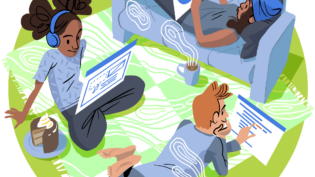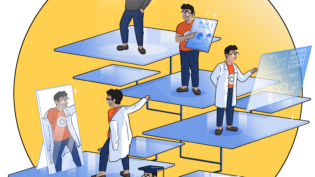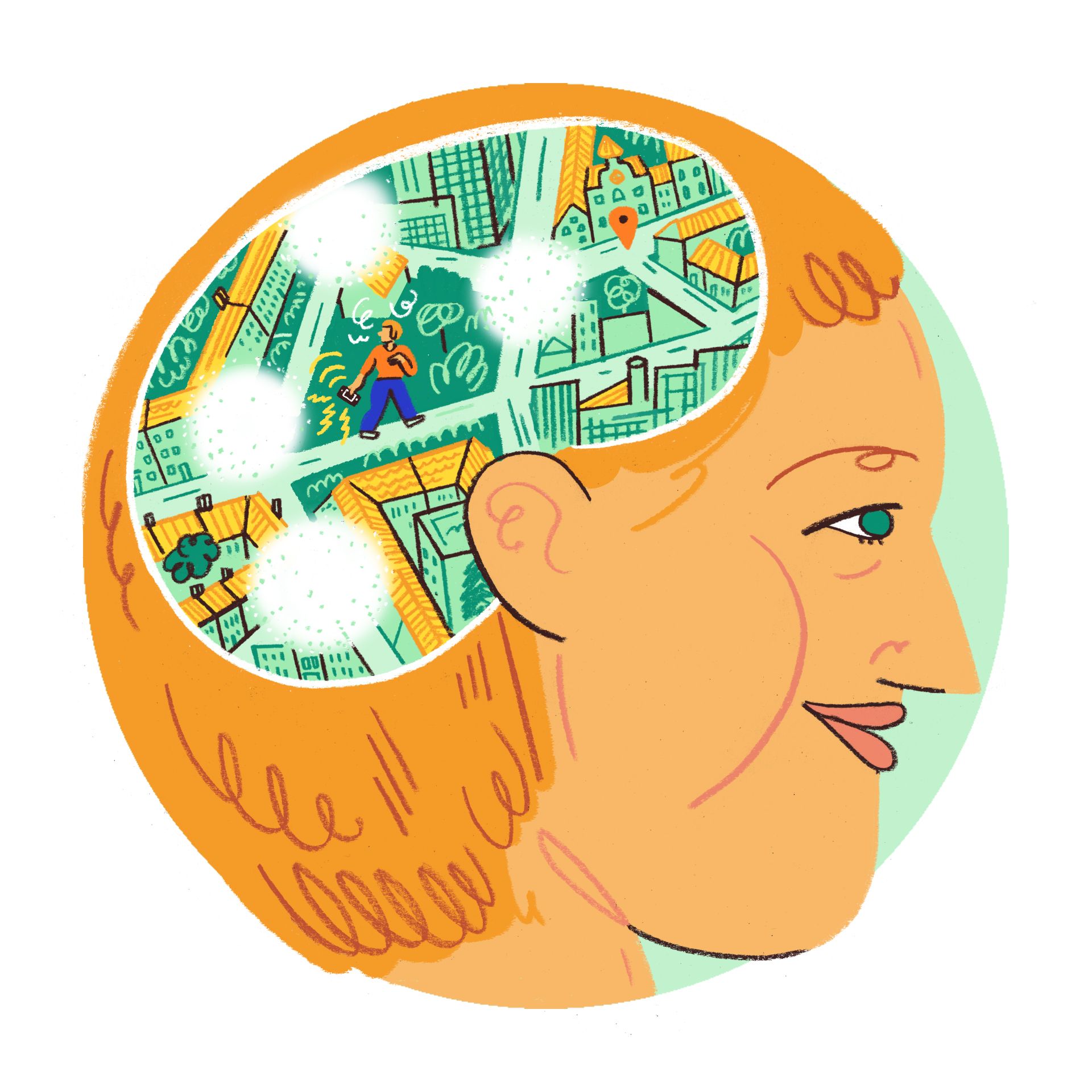
Getting ahead of Alzheimer’s disease
Written by
This researcher’s startup idea could enable earlier diagnoses and path the way for a cure.
Forget about conventional memory tests! Cognitive neuroscience researcher Nadine Diersch from the DZNE in Magdeburg is exploring new ways to diagnose Alzheimer’s disease with the help of a universal device: our smartphone. Her app prototype is a chance for people at risk to get ahead of time, opening up possibilities for treating the incurable disease.
When did you start taking interest in Alzheimer’s disease?
During my studies I did an internship in a neurorehabilitation clinic in Switzerland, where I had direct contact with Alzheimer’s patients as well as patients who suffered from a stroke. I was amazed by the plasticity of the brain and the positive effects of training over time. Since I started working at the DZNE in Magdeburg, which is the German Centre for Neurodegenerative Diseases, I have grown even more interested in neurodegeneration and Alzheimer’s disease in particular.
For which there is no cure as of now …
True, but there is a lot of progress in research on cognitive neuroscience of ageing at the moment. We have learned that protein accumulations in certain brain regions might be one of the first signs of a pathologically ageing brain – many years before a person exhibits any signs of the typical memory loss. Interestingly, the proteins begin to accumulate in brain regions that are known to contain our “internal GPS system”. Our research group at DZNE focuses on this age-related decline in spatial navigation, which could be an important indicator to detect and target Alzheimer’s disease at a much earlier stage.
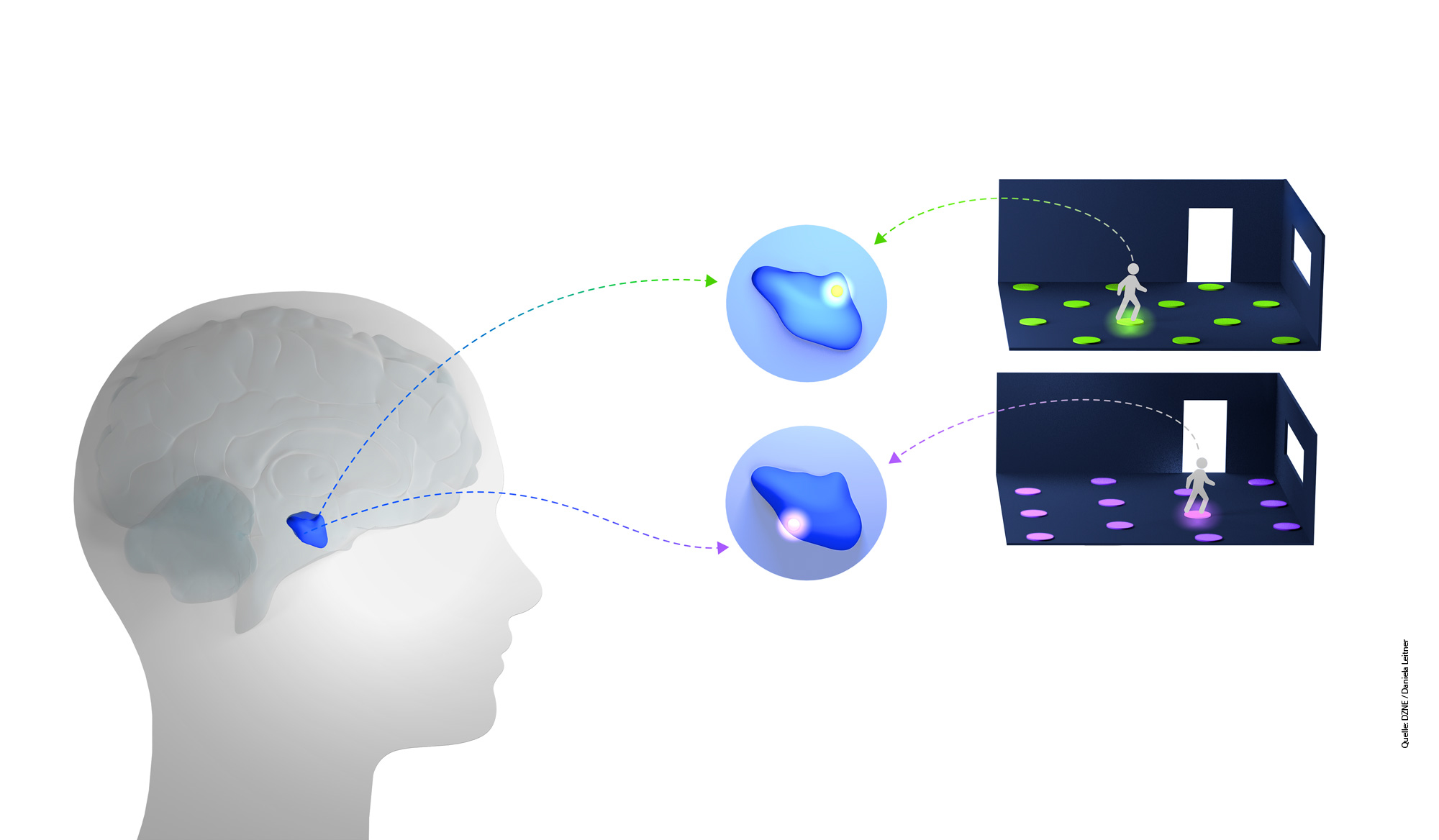
What sparked the idea to turn your research into a product?
We typically place our participants in a Virtual Reality model and ask them to point towards certain locations in the virtual environment, for instance. However, this form of navigation can obviously be very confined. I’m an outdoorsy person and like to go on hikes using tracking apps. At some point I wondered: What about our walking patterns, the paths we take? Why not use data from our smartphones to study our questions? We all carry our smartphones with us all the time! Using our mobile devices, we have an opportunity to see whether movement patterns during navigation in the real world can be used to detect early changes in the brain – in an easy-to-apply and cost-effective manner!
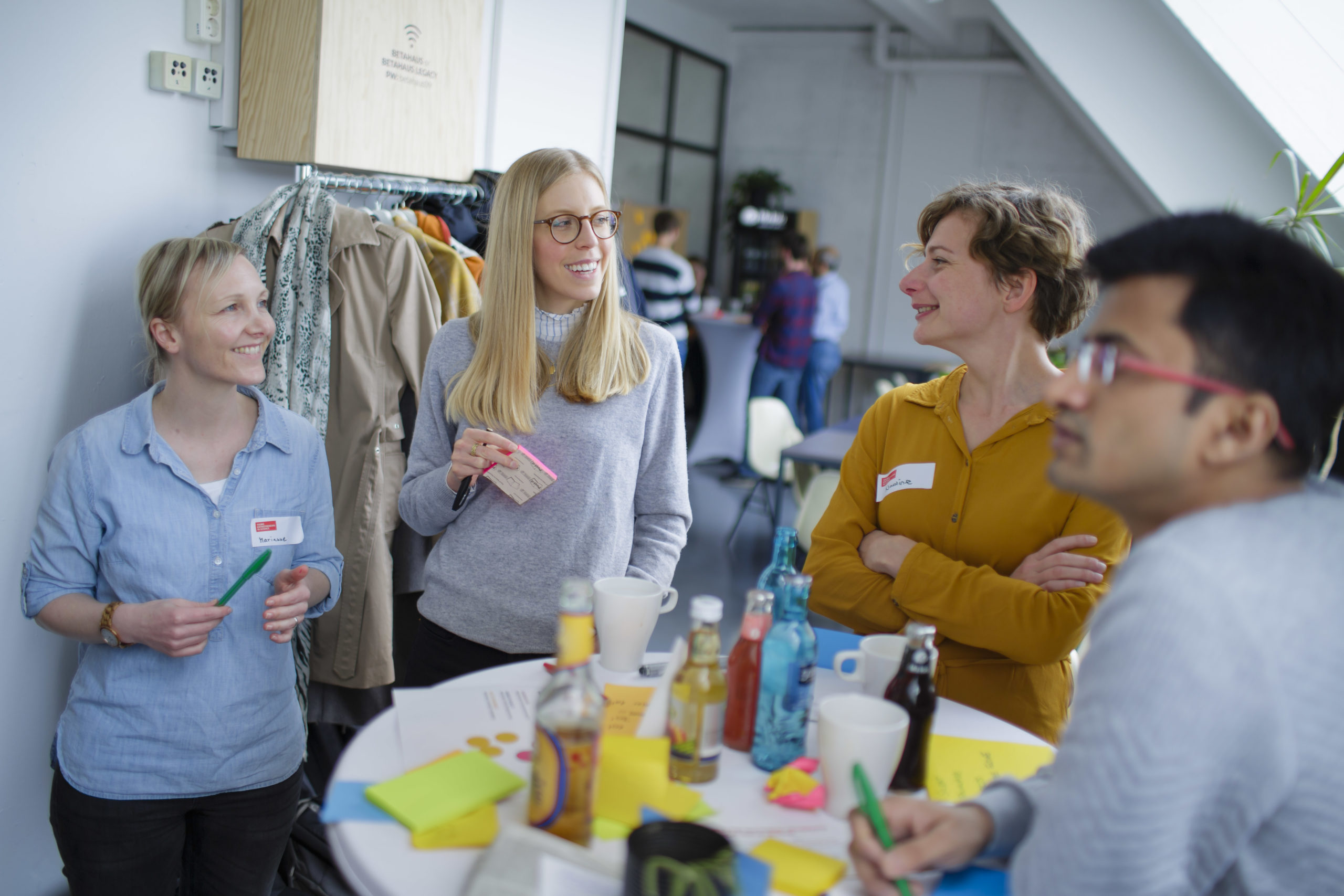
You pitched the idea during the Young Entrepreneurs in Science workshop in Berlin …
It was very helpful to talk to people outside of my domain and to look at what defining a product looks like beyond the pure research questions. I am trained as a researcher, but now I need to sell a product! All of a sudden, I am facing questions that I never had to face in my research project. It was very valuable to have an audience and get feedback. I had the feeling that my idea generated interest, which encouraged me to move along with it. In addition, developing a business model canvas for the project helped me to refine my idea.
Which will be the next steps to take?
I acquired some internal funding from the Innovation to Application Award, issued by the DZNE. This allows me to realize the first application prototype together with a software development company and conduct the first proof of concept studies in Magdeburg on our campus. The next step is to acquire more funding over the course of this or next year, depending on how much the Covid-19 pandemic will impact our research timeline.
What are you looking forward to as a soon-to-be entrepreneur?
As a researcher, I like data! The DZNE is the perfect environment to collect data from different age and patient groups to further validate the idea and develop a machine learning algorithm that is able to detect abnormalities in the movement patterns. Translating the research results into a product, together with a team of other experts such as software developers and business experts, is a perspective that I find exciting!
How to benefit from being a researcher with regard to starting a business?
As scientists, we tap into a variety of different skills to implement, analyze, communicate and also finance our research. During my PhD, I learned to work independently and adapt to changes. I am optimistic that these skills will also help me in the private sector •
